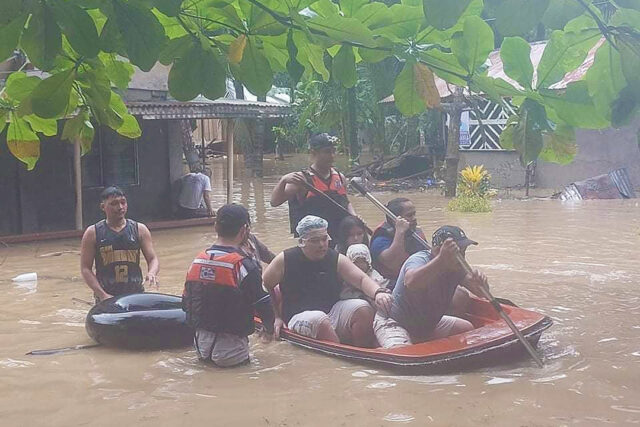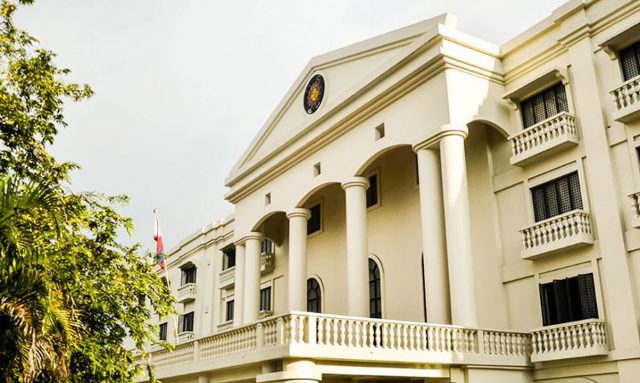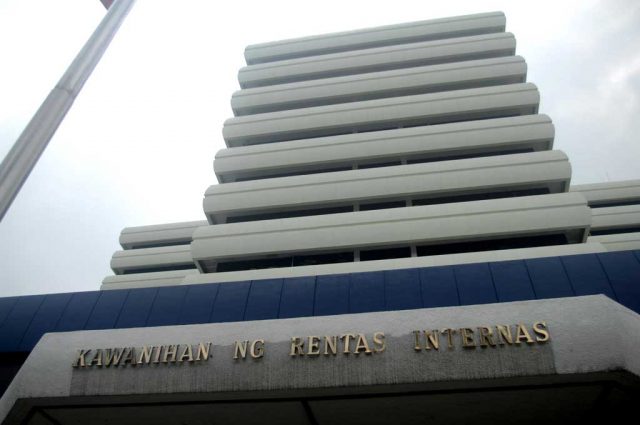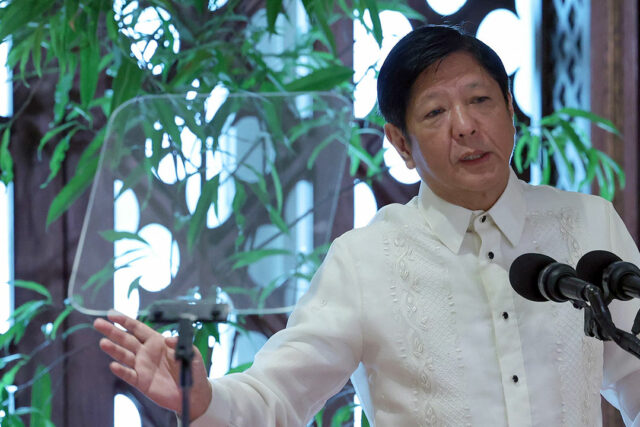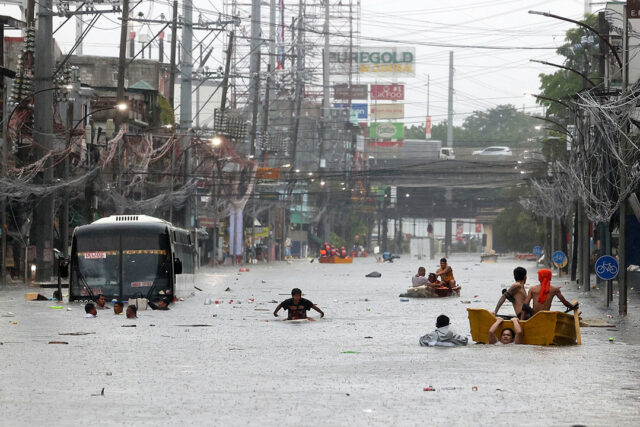THE PHILIPPINES has started soliciting offers as it plans to buy 40 new multi-role fighter aircraft to boost its territorial defense, according to its Defense chief.
Bidders should propose a financing package where payment can be spread out, Defense Secretary Gilberto Eduardo C. Teodoro, Jr. told a budget hearing at the House of Representatives on Thursday.
He did not specify which models the Philippines was seeking to buy, or who the potential bidders are.
The timeframe for the procurement was also not immediately clear, though he said the government is looking to buy it “as soon as possible.”
The military is allotting as much as P400 billion for the acquisition of the military jets, Mr. Teodoro told reporters after the budget hearing.
The Philippines, a defense ally of former colonial power the United States, is seeking to modernize and beef up its military inventory, and its air force has few fighter jets.
Mr. Teodoro has said the country needed “faster and more lethal” multi-role jet fighters on top of its South Korean FA-50s.
The government is looking at reasonable financing schemes to fund its modernization program, including tapping syndicated loans from private lenders, he added.
“My instruction is to divide it into at least 60% of the useful life of the asset,” he told congressmen. “The financing should be that long to make it more digestible for the economy.”
“The decided acquisitions shall be for capabilities that can make a real difference,” Mr. Teodoro said. “For multi-role fighters, we believe one dozen will not make any difference at all.”
President Ferdinand Marcos, Jr. has approved “Re-Horizon 3,” an acquisition plan for new military weaponry and equipment worth P1.89 trillion ($33.6 billion) to boost its defense.
Philippine lawmakers have pushed higher budgets for defense agencies amid rising sea tensions with China.
Also on Thursday, the Chinese Embassy in Manila said it had filed a diplomatic protest with the Japanese Embassy in the Southeast Asian country concerning “irresponsible” remarks its ambassador made regarding Sabina Shoal in the South China Sea.
In a statement, the Chinese embassy said the comments displayed “ignorance of the facts and contained unwarranted accusations against China.”
Japan’s ambassador on Monday tweeted a video of a Chinese Coast Guard vessel under the words “another unacceptable development around Sabina Shoal.”
The Philippines has accused China of dumping dead corals at Sabina Shoal, another feature in the South China Sea that both claim, to alter its elevation so it could reclaim the area.
Both countries have been trading blame over collisions near the shoal, which has been a staging ground for Philippine resupply missions to Second Thomas Shoal. Both shoals are within the Philippines’ exclusive economic zone.
TREATY REVIEW
On Sunday, Manila’s South China Sea task force accused Chinese vessels near Sabina Shoal of ramming and using water cannons against a Philippine fishery vessel transporting food, fuel and medicine for Filipino fishermen.
The Chinese Coast guard said the Philippine vessel “ignored repeated serious warnings and deliberately approached and rammed” China’s law enforcement boat, resulting in a collision.
China claims sovereignty over nearly all of the South China Sea, including areas claimed by Brunei, Indonesia, Malaysia, the Philippines, Taiwan and Vietnam. Beijing has deployed an armada of vessels to protect its claims.
A United Nations-backed tribunal based in the Hague in 2016 voided Beijing’s expansive claim for being illegal. China has ignored the ruling.
On Wednesday, the Philippines’ National Maritime Council said there’s a need to update the Manila’s Mutual Defense Treaty (MDT) with Washington, citing the changing geopolitical landscape.
“Maybe it’s high time now to make the review,” council spokesman Alexander S. Lopez, Jr. told reporters, noting that the treaty should be “relevant to new security challenges.”
Washington is bound by the treaty to defend the Philippines in case of an armed attack on its forces, public vessels or aircraft in the South China Sea.
There have been domestic calls to clarify provisions of the treaty after a June 17 standoff at Second Thomas Shoal, where Chinese forces allegedly threatened, using bladed weapons, Filipino troops delivering supplies to a Navy outpost there.
Filipino soldiers fought with bare hands, and one of them lost a thumb when his vessel was rammed by Chinese forces, according to the Philippine military.
Raymond M. Powell, a fellow at Standard University’s Gordian Knot Center for National Security Innovation, on Wednesday said the main question is whether the treaty should be updated or “simply needs its application clarified under current conditions.”
He noted that top United States officials including President Joseph R. Biden and Defense Secretary Lloyd J. Austin have repeatedly clarified that the treaty applies to the South China Sea.
Formal consultations under Article III of the 1951 Mutual Defense Treaty (MDT) should be the initial steps in any attempts to update the treaty, Mr. Powell said in an X message.
Under the treaty, both countries through their Foreign ministers will regularly consult each regarding the pact’s implementation and “whenever in the opinion of either of them the territorial integrity, political independence or security of either of the parties is threatened by an external armed attack in the Pacific.”
“Trying to push a revised MDT through both nations’ Legislature is a long and difficult process,” Mr. Powell said. “Perhaps it would be worth doing, but Article III consultations would help determine if the payoff would be worth the effort.”
He said the Philippines is threatened by an “external armed attack,” so consultations would be appropriate. “It would also serve as an important signal to China that its aggression has brought it to a dangerous point.” — Kenneth Christiane L. Basilio with Reuters



